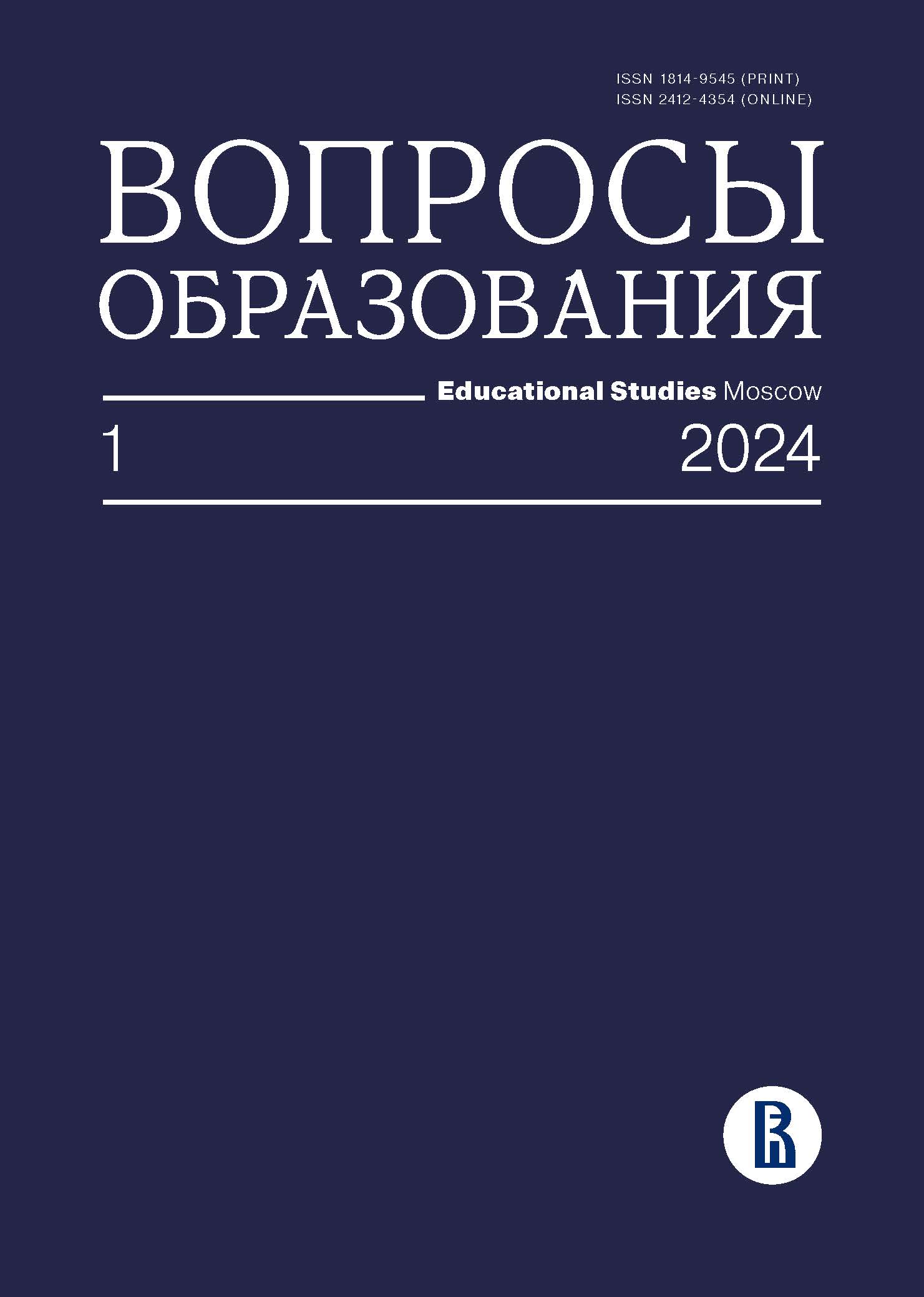Детство: парадоксы самостоятельности
Аннотация
В статье проблематизируется возможность развития агентности в детстве. Показано, что обычно не дифференцируемые конструкты «агентность» и «автономия» психологически представляют собой принципиально разные действия. Основанием их различения является характер взаимодействия индивида с социальной структурой. Автономия представляет собой встраивание в наличную структуру, приобретение навыков независимого функционирования в ней. Агентность же предполагает трансформацию структуры и «переход через границу семантических полей», по Ю.М. Лотману.
В исследованиях детства за последние десятилетия произошло несколько важных «поворотов». Исходно детство рассматривалось как подготовка к взрослой жизни, которая реализовывалась в принципиально иерархических формах обучения. Примерно c 1970-х годов о детях начинают говорить как о потенциальных акторах в социальном мире. А с начала XXI в. набирает силу обсуждение самостоятельности (автономии), в составе которой выделяют способность действовать независимо от других и действия в соответствии со своими целями и убеждениями.
Авторы проводят разделение агентности как преодоления границ, характеризующих структуру, и автономии как действия внутри исходно заданных границ. Механизмом агентности они считают продуктивное действие (событие) как меняющее ситуацию действования, а способом «обучения» агентности — пробу, в том числе игровую.
Приведены примеры высказываний подростков и молодых людей, которые можно квалифицировать как специфичные для агентности, независимости и волевого действия.
Скачивания
Литература
Asmolov A.G. (1982) Osnovnye printsipy psikhologicheskogo analiza v teorii deyatelʼnosti [The Basic Principles of Psychological Analysis in the Theory of Activity]. Voprosy Psychologii, no 2, pp. 15–28.
Brandow-Faller M. (ed.) (2021) Dizain detstva. Igrushki i materialʼnaya kulʼtura detstva s 1700 goda do nashikh dney [Childhood by Design. Toys and the Material Culture of Childhood, 1700 — Present]. Moscow: Novoe literaturnoe obozrenie.
Brown Rosier K. (2009) Children as Problems, Problems of Children. The Palgrave Handbook of Childhood Studies (eds J. Qvortrup, W. Corsaro, M. Honig), Basingstoke: Palgrave Macmillan, pp. 256–272.
Burman E. (2016) Deconstructing Developmental Psychology. London: Routledge. https://doi.org/10.4324/9781315727127
Elkonin B.D. (2019) Produktivnoe dejstvie [Productive Action]. Kul'turno-istoricheskaya psikhologiya / Cultural-Historical Psychology, vol. 15, no 1, pp. 116–122. https://doi.org/10.17759/chp.2019150112
Elkoninova L.I., Elkonin B.D. (1993) Znakovoe oposredovanie, volshebnaya skazka i subʼektnostʼ dejstviya [Symbolic Mediation, a Fairy Tale and Subjectivity of Action]. Lomonosov Psychology Journal, no 2, pp. 62–70.
Fanning C. (2021) Lego i tovarizatsiya detstva [Lego and the Commodification of Childfood]. Dizain detstva. Igrushki i materialʼnaya kulʼtura detstva s 1700 goda do nashikh dney [Childhood by Design. Toys and the Material Culture of Childfood, 1700 — Present] (ed. M. Brandow-Faller), Moscow: Novoe literaturnoe obozrenie, pp. 114–139.
Fennetaux A. (2021) Perekhodnye pandory: kukly i "dolgiy" XVIII vek [Transitional Pandoras: Dolls and the Long Eighteenth Century] Dizain detstva. Igrushki i materialʼnaya kulʼtura detstva s 1700 goda do nashikh dney [Childhood by Design. Toys and the Material Culture of Childfood, 1700 — Present] (ed. M. Brandow-Faller), Moscow: Novoe literaturnoe obozrenie, pp. 64–87.
Foucault M. (2013) Nadziratʼ i nakazyvatʼ. Rozhdenie tyurʼmy [To Supervise and Punish. The Birth of the Prison]. Moscow: Ad Marginem.
Giddens A., Sutton P. (2018) Osnovnye ponyatiya v sotsiologii [Essential Concepts in Sociology]. Moscow: HSE.
Goffman E. (2019) Totalʼnye instituty: ocherki o sotsialʼnoy situatsii psikhicheski bolʼnykh patsientov i prochikh postoyalʼtsev zakrytykh uchrezhdeniy [Asylums: Essays on the Social Situation of Mental Patients and Other Inmates]. Moscow: Elementarnye formy.
James A., Jenks C., Prout A. (1998) Theorizing Childhood. New York, NY: Teachers College.
Jenks C. (2005) Childhood. London: Routledge.
Lee N. (2001) Childhood and Society: Growing Up in an Age of Uncertainty. Phildelphia, PA: Open University.
Leontiev A.N. (1975) Deyatelʼnostʼ, soznanie, lichnostʼ [Activity, Conscience, Personality]. Moscow: Politizdat.
Leontiev D.A. (1999) Psikhologiya smysla [Psychology of Meaning]. Moscow: Smysl/
Lotman M.Yu. (1970) Struktura khudozhestvennogo teksta [The Structure of a Literary Text]. Moscow: Iskusstvo.
Ostroverkh O.S. (2022) Obrazovatelʼnoe prostranstvo uchebnoy deyatelʼnosti kak uslovie subʼektnosti eyo uchastnikov [Learning Space as a Prerequisite of Agency in Learning Activity]. Psikhologicheskaya nauka i obrazovanie / Psychological Science and Education, vol. 27, no 3, pp. 16–27. https://doi.org/10.17759/pse.2022270302
Polivanova K.N. (2020) Novy obrazovatelʼny diskurs: blagopoluchie shkolʼnikov [New Educational Discourse: The Well-Being of Schoolchildren]. Kul'turno-istoricheskaya psikhologiya / Cultural-Historical Psychology, vol. 16, no 4, pp. 26–34. https://doi.org/10.17759/chp.2020160403
Polivanova K.N. (2011) Proektnaya deyatelʼnostʼ shkolʼnikov. Posobie dlya uchitelya [Project Activities of Schoolchildren. Teacher's Manual]. Moscow: Prosveshchenie.
Polivanova K.N. (2001) Psikhologiya vozrastnykh krizisov [Psychology of Age-Related Crises]. Moscow: Academia.
Prout A., James A.A. (1990) New Paradigm for the Sociology of Childhood? Provenance, Promise and Problems. Constructing and Reconstructing Childhood (eds A. James, A. Prout), London; New York; Philadelphia: Falmer, pp. 7–34.
Qvortrup J. (1990) Childhood as a Social Phenomenon: An Introduction to a Series of National Reports. Eurosocial Reports no 36. Vienna: European Centre for Social Welfare Policy and Research.
Qvortrup J., Corsaro W., Honig M. (2009) The Palgrave Handbook of Childhood Studies. Basingstoke: Palgrave Macmillan.
Rubinstein S.L. (2003) Bytie i soznanie. Chelovek i mir [Being and Consciousness. Man and the World]. Saint Petersburg: Piter.
Soenens B., Vansteenkiste M., Van Petegem S., Beyers W., Ryan R. (2017) How to Solve the Conundrum of Adolescent Autonomy? On the Importance of Distinguishing between Independence and Volitional Functioning. Autonomy in Adolescent Development: Towards Conceptual Clarity (eds B. Soenens, M. Vansteenkiste, S. Van Petegem), Abingdon, Oxon; New York, NY: Routledge, pp. 1–33. https://doi.org/10.4324/9781315636511
Sorokin P.S., Froumin I.D. (2022) Obrazovanie kak istochnik deystviya, sovershenstvuyushchego struktury: teoreticheskie podkhody i prakticheskie zadachi [Education as a Source for Transformative Agency: Theoretical and Practical Issues]. Voprosy obrazovaniya / Educational Studies Moscow, no 1, pp. 116-137. https://doi.org/10.17323/1814-9545-2022-1-116-137
Yerofeyeva V.G., Bochaver A.A., Tsyganova E.M. (2023) Narrativy o nezavisimosti i volevom funktsionirovanii: ot podrostkovogo vozrasta k "stanovyashchejsya vzroslosti" [Narratives of Independence and Volitional Functioning: From Adolescence to Emerging Adulthood]. Monitoring of Public Opinion: Economic and Social Changes, no 4, pp. 239–261. https://doi.org/10.14515/monitoring.2023.4.2414








